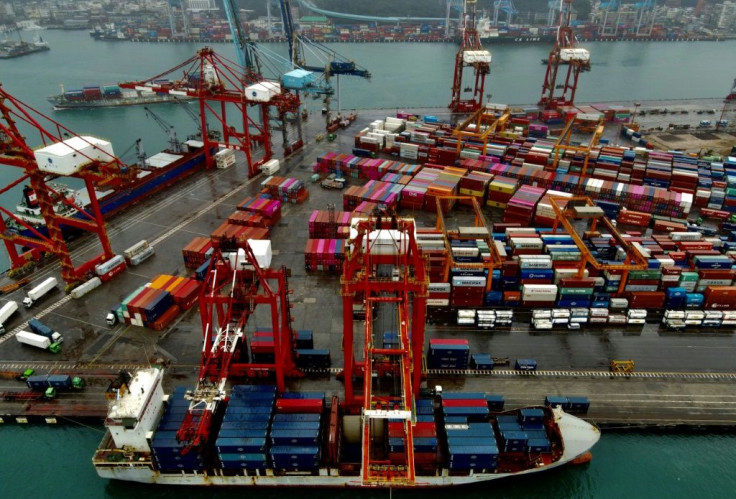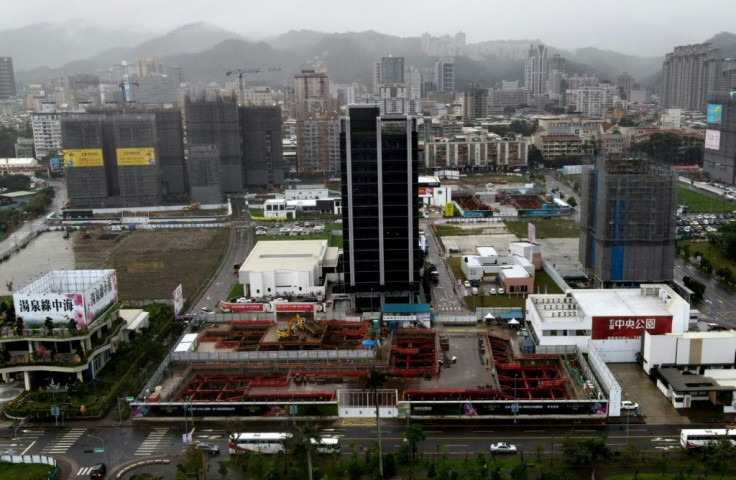Virus Success Helps Taiwan Buck Global Downturn With Enviable Growth
As the world's economies reel from the coronavirus pandemic, Taiwan is on track to end the year clocking up enviable growth -- a testament to the island's success in halting the deadly disease.
Throughout much of the year, shoppers have thronged stores, restaurants have stayed busy, tourist attractions have remained open and factories have kept humming.
In a remarkable contrast to comparable industrialised economies, which have taken a battering, official projections forecast growth of 2.5 percent in 2020.
"That probably will be the highest in the world," Lin Chu-chia, an economist at National Chengchi University, told AFP.

For the first time since 1991, Taiwan is also set to outgrow its giant neighbour China, where the virus first emerged but has now also been largely vanquished.
The International Monetary Fund estimates China will grow 1.9 percent this year, compared with a global contraction of 4.4 percent.
Taiwan's ability to weather the coronavirus has centred on two crucial elements.

When the virus first emerged, authorities made economically painful and unpopular shutdown decisions early on.
Borders were shut, strict quarantine measures enforced and carriers traced. As a result, Taiwan had no local infections for 253 straight days from early April.
That clean streak was broken on Tuesday when a woman tested positive after coming into contact with a foreign pilot, prompting a scramble to contain the new outbreak.
But it was because the disease was essentially defeated by the beginning of April that Taiwan's high-tech economy was in a unique position to roar back.
For decades, Taiwan has been the world's premier destination for computer chip and electronics manufacturing.

And at a time when vast swathes of the world were suddenly forced to work or learn from home, Taiwan's factories were able to meet the soaring demand.
"The key drive for Taiwan's economy is the robust export growth," Lin said.
Exports soared to a historic high of $32 billion in October, up 11 percent on-year, with double-digit growth in major markets including China and the United States, official data showed.
November's exports became the second highest ever, with the annual total on course to break records too. Earlier this month, Taiwan's dollar was trading at highs not seen since 1997.

Topping the list of a string of tech companies that registered record profits in the third quarter is Taiwan Semiconductor Manufacturing Co (TSMC), the world's largest contract microchip maker that supplies Apple and other international brands.
TSMC's net profit in those three months rose by over a third on-year to $4.8 billion. Meanwhile its shares soared over 50 percent since the beginning of the year, propelling the stock market to new highs.
Computer maker Acer saw revenues for its Chromebooks and gaming hardware rise 94 percent and 70 percent respectively, to lift net profit to its highest in almost a decade.
"We do see that the demand is higher than our supply into the foreseeable future," said Acer CEO and chairman Jason Chen.
There have inevitably been some victims.
The hotel and tourism trade has been hit hard by the evaporation of international travel.
Combined revenue for listed hotels and tour operators in the first 11 months of 2020 fell 43 percent from last year, according to the Taiwan Stock Exchange.
But the fall could have been steeper had Taiwan suffered the repeated lockdowns and restrictions seen in many western countries.
"I think it's not just a coincidence that Taiwan's economy can weather the pandemic," general manager of Taiwan Champ Manufacturing Andy Chen told AFP.
His company has been churning out face masks this year, its revenue soaring 12-fold and production set to quadruple to 700 million masks annually.
"Taiwanese companies have a keen sense of crisis that makes them more adaptable to changes," he said.
Business for retailers, restaurants and domestic tourism has been steady since May.
"We've already reached our sales target and we expect a two-digit growth for this Christmas season compared with last year," said Jenny Chien, a public relations manager for Gloria Outlets in northern Taoyuan city.
She said many people who couldn't take holidays abroad used their travel budget to go on shopping sprees.
Others chose to put their money in the stock market, like 47-year-old accountant Jimmy Chang, who in just six months saw a nearly 20 percent return on his investment.
"I think the bullish trend will continue as Taiwan's economy is growing and life is going on as usual, in contrast with serious outbreaks elsewhere in the world," he said.
© Copyright AFP {{Year}}. All rights reserved.





















